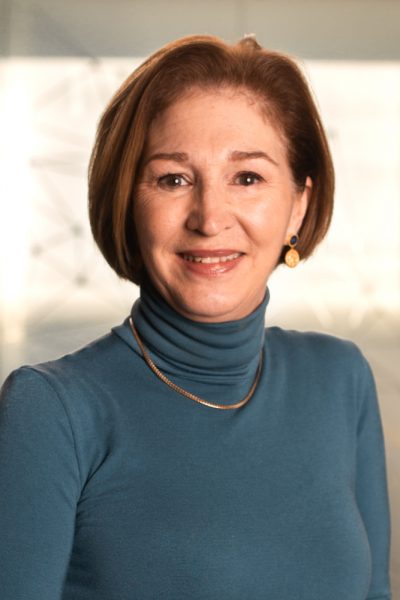Anne-Marie Slaughter is Next Speaker in Mudd Lecture Series Slaughter's lecture, which is open to the public to view online, is titled "Renewing the Promise of America: Looking Back to Move Forward."
Anne-Marie Slaughter, CEO of New America and the Bert G. Kerstetter ’66 University Professor Emerita of Politics and International Affairs at Princeton University, will give a virtual lecture on Oct. 15 at 5 p.m. as part of Washington and Lee University’s Mudd Center for Ethics series on Global Ethics in the 21st Century: Challenges and Opportunities, a collaboration between the Mudd Center and the Center for International Education.
Slaughter’s lecture, which is open to the public to view online, is titled “Renewing the Promise of America: Looking Back to Move Forward.” The public can register for the virtual event for free at http://go.wlu.edu/mudd/slaughter.
“We are thrilled to present Anne-Marie Slaughter in our series on global ethics,” said Brian Murchison, director of the Mudd Center. “She insists on the need for foreign policymakers to see and understand the world we inhabit in a new way. That change of vision involves web craft, seeing the international system not simply as a chessboard for grand strategy but also as a web of relationships among all sorts of state and non-state players linked and interacting across borders.”
Slaughter was the first woman to serve as director of policy planning for the United States Department of State, a position she held from 2009 to 2011. Upon leaving the State Department, she received the Secretary’s Distinguished Service Award for her work leading the Quadrennial Diplomacy and Development Review and meritorious service awards from the U.S. Agency for International Development and the U.S. military’s Supreme Allied Commander for Europe.
Before her government service, Slaughter was dean of Princeton’s Woodrow Wilson School of Public and International Affairs from 2002 to 2009 and the J. Sinclair Armstrong Professor of International, Foreign and Comparative Law at Harvard Law School from 1994 to 2002.
Slaughter has written or edited eight books, including “The Chessboard and the Web: Strategies of Connection in a Networked World,” “Unfinished Business: Women, Men, Work, Family,” “The Idea That Is America: Keeping Faith with Our Values in a Dangerous World” and “A New World Order,” as well as more than 100 scholarly articles. She was also the convener and academic co-chair of the Princeton Project on National Security, a multi-year research project to develop a new, bipartisan national security strategy for the United States.
In 2012, she published the article “Why Women Still Can’t Have It All” in The Atlantic, which quickly became the most-read article in the magazine’s history and helped spawn a renewed national debate on the continued obstacles to genuine full male-female equality.
Slaughter is a contributing editor to the Financial Times and writes a bi-monthly column for Project Syndicate. She provides frequent commentary for both mainstream and new media and curates foreign policy news for over 140,000 followers on Twitter. Foreign Policy magazine named her to their annual list of the Top 100 Global Thinkers four years in a row. Slaughter received a bachelor’s degree from Princeton, a master’s degree and a doctorate in philosophy in international relations from Oxford, where she was a Daniel M. Sachs Scholar, and a Juris Doctor degree from Harvard.
The Mudd Center was established in 2010 through a gift to the university from award-winning journalist Roger Mudd, a 1950 graduate of W&L. By facilitating collaboration across traditional institutional boundaries, the center aims to encourage a multidisciplinary perspective on ethics informed by both theory and practice. Previous Mudd Center lecture series topics have included Race and Justice in America, The Ethics of Citizenship, Markets and Morals, Equality and Difference, The Ethics of Identity and The Ethics of Technology.
 Anne-Marie Slaughter
Anne-Marie Slaughter
You must be logged in to post a comment.